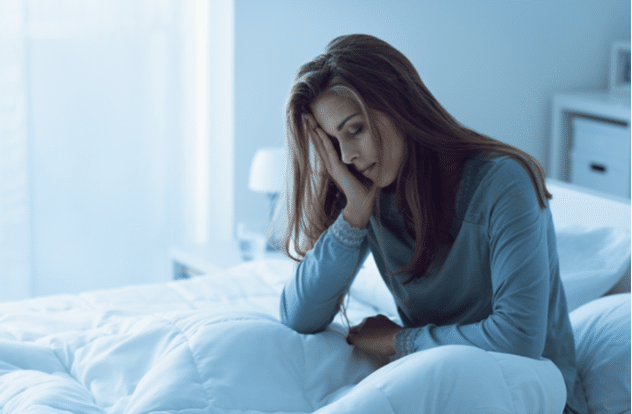
- Reduced attention span
- Slowed thinking
- Lack of energy
- Reliance on stimulants to stay productive
- Worsened memory
- Poor or risky decision-making
- Mood changes such as feelings of stress, irritability, and anxiety
What May be Behind Poor Sleep
When sleep is lacking for a prolonged period, it may be helpful to explore the potential that a sleep disorder may be the cause. Two of the common sleep disorders that doctors see relatively often include sleep apnea and insomnia.
Sleep Apnea
There are three types of sleep apnea. The most common form is obstructive sleep apnea, OSA or OSAS. According to the National Institutes of Health, approximately 12 million Americans have OSA. The term is translated from the Greek word apnea, meaning “without breath.” The term obstructive sleep apnea describes a condition of breathlessness caused by a physical obstruction of the airway when a person sleeps. When the obstruction occurs, the person may stop breathing for many seconds. These pauses in breathing may occur dozens of times every hour. They are usually preceded by loud snoring. Coming out of the apneic episode, the person may make a choking or gasping sound. During the episode, the brain is frantically producing stimulants like cortisol and adrenaline to restart respiration. The effects of obstructive sleep apnea go far beyond poor sleep. This condition may have a severe impact on health and wellness if not treated properly. CPAP therapy is one of the most effective treatments prescribed.
Insomnia
Insomnia can be one of the more challenging sleep disorders to identify and treat. Like obstructive sleep apnea, its implications on daily life can be serious. This is because insomnia can be a chronic problem that degrades sleep more nights than not. Signs that you may have insomnia include feeling tired but unable to fall asleep well, waking often throughout the night and, when you do, having a hard time falling back to sleep. People with insomnia often wake early in the morning despite their lack of sleep, and they feel generally unrefreshed. The risk of developing this condition increases with age, according to studies. To properly treat insomnia, it is important to discover the underlying problem and address that with care and consistency. It is sometimes necessary to “sleep train” the brain to improve the quality of sleep that is available.
These are just two of the common sleep disorders that can have a significant impact on daily life and on health. If you suspect that you or someone you love may have obstructive sleep apnea, a thorough consultation and sleep study can provide you with answers. For information regarding our home sleep study, please contact our office at (212) 480-4062 to schedule an evaluation.

